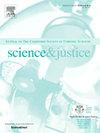全球采用基于活动层面主张的调查结果法医评估报告的现状和障碍
IF 2
4区 医学
Q2 MEDICINE, LEGAL
引用次数: 0
摘要
本文考察了目前的状态和挑战,围绕全球采用评估报告的法医发现给定的活动水平的主张。评估性报告对可用于司法程序的调查结果进行结构化和客观的评估。对调查结果的评估给出了活动级命题,解决了关于法医证据存在的“如何”和“何时”问题。这通常是事实发现者感兴趣的问题。律师们发现,他们在证人席上面临这样的问题越来越频繁。尽管它很重要,但它的广泛采用受到了一些障碍的阻碍。本文探讨了法医学界在不同司法管辖区提出的各种问题。这包括对建议的方法保持沉默,对缺乏可靠和公正的数据来告知概率的担忧,监管框架和方法的区域差异,以及实施给定活动级主张的评估的培训和资源的可用性。提出了克服这些障碍和促进活动一级评价报告在全球更大程度一体化的建议。通过解决这些障碍,可以在国际上提高法律和调查背景下(考虑到活动层面主张的证据)法医评估的可信度和效用。本文章由计算机程序翻译,如有差异,请以英文原文为准。
Current state and barriers to global adoption of forensic evaluative reporting of findings given activity-level propositions
This article examines the current state and challenges surrounding the global adoption of evaluative reporting of forensic findings given activity-level propositions. Evaluative reporting provides a structured and objective assessment of findings that can be used in judicial proceedings. The assessment of findings given activity-level propositions addresses ‘how’ and ‘when’ questions about the presence of forensic evidence. This is often the question of interest to the fact-finder. Practitioners are finding that they face such questions on the witness stand with increasing frequency. Despite its importance, widespread adoption has been hampered by several barriers. This article explores various concerns raised by the forensic community in different jurisdictions. This includes reticence toward suggested methodologies, concern about a lack of robust and impartial data to inform probabilities, regional differences in regulatory frameworks and methodology, and the availability of training and resources to implement evaluations given activity-level propositions. Suggestions are made for overcoming these barriers and fostering greater global integration of activity-level evaluative reporting. By addressing these barriers, the credibility and utility of forensic evaluations (of evidence considering activity-level propositions) in both legal and investigative contexts can be improved internationally.
求助全文
通过发布文献求助,成功后即可免费获取论文全文。
去求助
来源期刊

Science & Justice
医学-病理学
CiteScore
4.20
自引率
15.80%
发文量
98
审稿时长
81 days
期刊介绍:
Science & Justice provides a forum to promote communication and publication of original articles, reviews and correspondence on subjects that spark debates within the Forensic Science Community and the criminal justice sector. The journal provides a medium whereby all aspects of applying science to legal proceedings can be debated and progressed. Science & Justice is published six times a year, and will be of interest primarily to practising forensic scientists and their colleagues in related fields. It is chiefly concerned with the publication of formal scientific papers, in keeping with its international learned status, but will not accept any article describing experimentation on animals which does not meet strict ethical standards.
Promote communication and informed debate within the Forensic Science Community and the criminal justice sector.
To promote the publication of learned and original research findings from all areas of the forensic sciences and by so doing to advance the profession.
To promote the publication of case based material by way of case reviews.
To promote the publication of conference proceedings which are of interest to the forensic science community.
To provide a medium whereby all aspects of applying science to legal proceedings can be debated and progressed.
To appeal to all those with an interest in the forensic sciences.
 求助内容:
求助内容: 应助结果提醒方式:
应助结果提醒方式:


